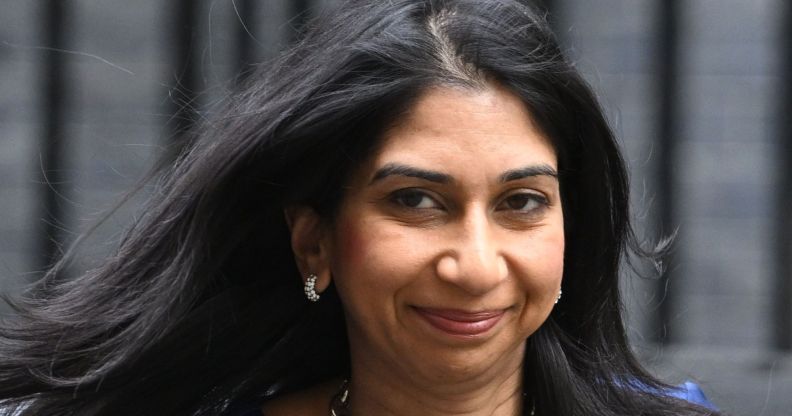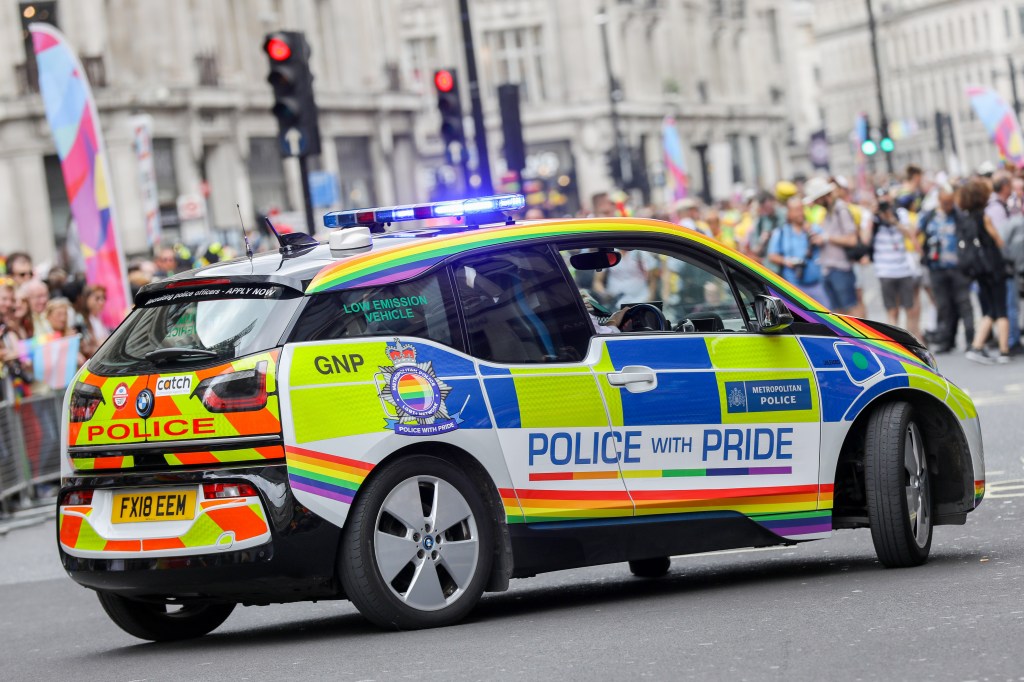Senior police leader hits back at Suella Braverman’s attack on ‘woke’ officers at Pride

Suella Braverman has once again called out so-called ‘political activism’ in the police force. (Getty Images)
A senior policeman has hit out at Suella Braverman’s plan to clamp down on officers dancing at Pride.
Paul Fotheringham, the president of the Police Superintendents’ Association (PSA), took particular aim at the home secretary for launching an investigation into “police impartiality”.
Earlier this month, Braverman ordered a review to be carried out into “political activism” in the police force, such as waving Pride flags which she said “symbolises highly contested ideologies”.
The review will be carried out by the chief inspector of constabulary, Andy Cooke.
Braverman wrote in an open letter at the time: “The British people expect their police to focus on cutting crime and protecting communities. Political activism does not keep people safe, solve crimes or support victims, but can damage public confidence.”

In a speech at the PSA Conference on Tuesday (12 September), detective chief superintendent Fotheringham said: “The language being used here matters”, noting that when the government uses such language it positions policing as “political rather than inclusive”, which opens “the doors to a rhetoric of discrimination against those most vulnerable in our communities”.
Fotheringham went on to say: “The home secretary recently wrote to all chief constables to question some of the work in this area under the subject of political impartiality. She gave examples of police activity she felt had led to the damaging of public confidence by supposedly apolitical police forces siding with one group over another.
“She references ‘dancing and fraternising with political demonstrators’, which we assume relates to police attendance at Pride. She talks about the displaying of the Progress flag and the wearing of badges. These are deeply personal and passionate matters for our staff and our communities.”
What Fotheringham has actually seen, he pointed out, is “plenty of examples of effective community engagement and a desire to promote and welcome inclusion” by police officers.
“Trust and confidence starts with how we treat our people. If they cannot be their true selves at work, how can we expect them to police our communities in the best possible way?”
The PSA, he continued, has sought to make “tangible change with regards to valuing difference” and he is “hugely proud” of the organisation’s influence.
“We are staunch supporters of our LGBT+ colleagues and communities. We recently helped fund a national conference for the LGBT+ National Police Network, at which I spoke, and I stressed: ‘We are with you, we will lean in and we will step up’.
“We are not afraid to be the allies our colleagues and communities deserve.”
Alongside her views on “dancing and fraternising” with LGBTQ+ people at Pride events, the home secretary claimed the force’s reputation was being damaged by engaging in a variety of other “political” activities, including the painting of police cars in Progress flag colours, taking the knee, apologising for being “institutionally racist” and “encouraging the uptake [of] critical race theory, gender ideology, or eco-extremism, as useful frameworks for policing”.
Braverman added: “In all of these examples, public confidence was damaged by the sight of a supposedly apolitical police force siding with one group over another, in a currently contentious area of public debate. In all of these examples, the public’s respect for policing was eroded.”
In recent years, trust in the police – particularly London’s Metropolitan Police – has been damaged by a number of high-profile cases, such as the crimes of Grindr killer Stephen Port and the rape and murder of Sarah Everard at the hands of off-duty constable Wayne Couzens, an armed member of the Met’s elite parliamentary and diplomatic protection group.
Data from the London Mayor’s Office shows that 73 per cent of people had trust in the police in March 2022, compared to 80 per cent a year earlier.
How did this story make you feel?

